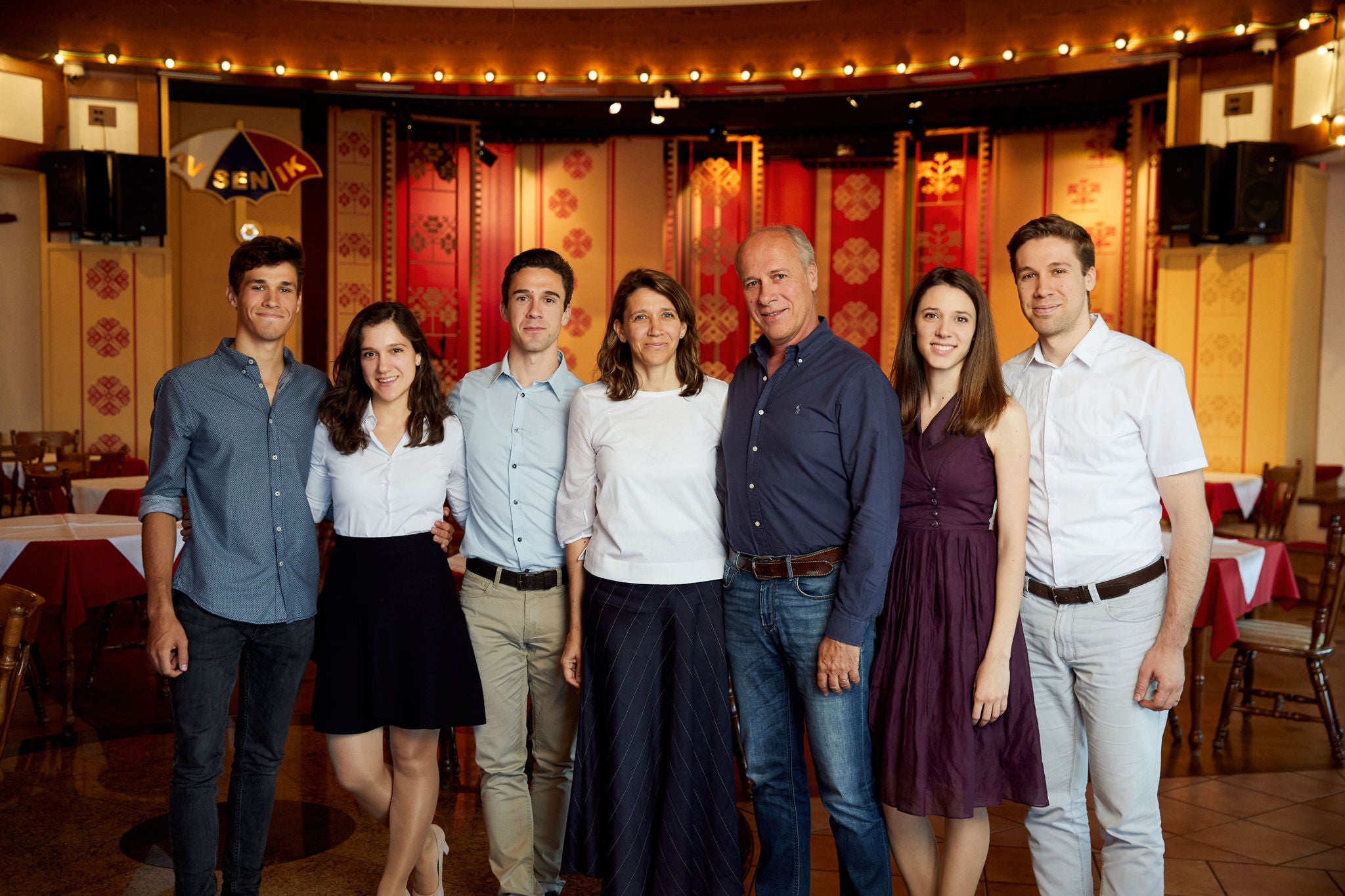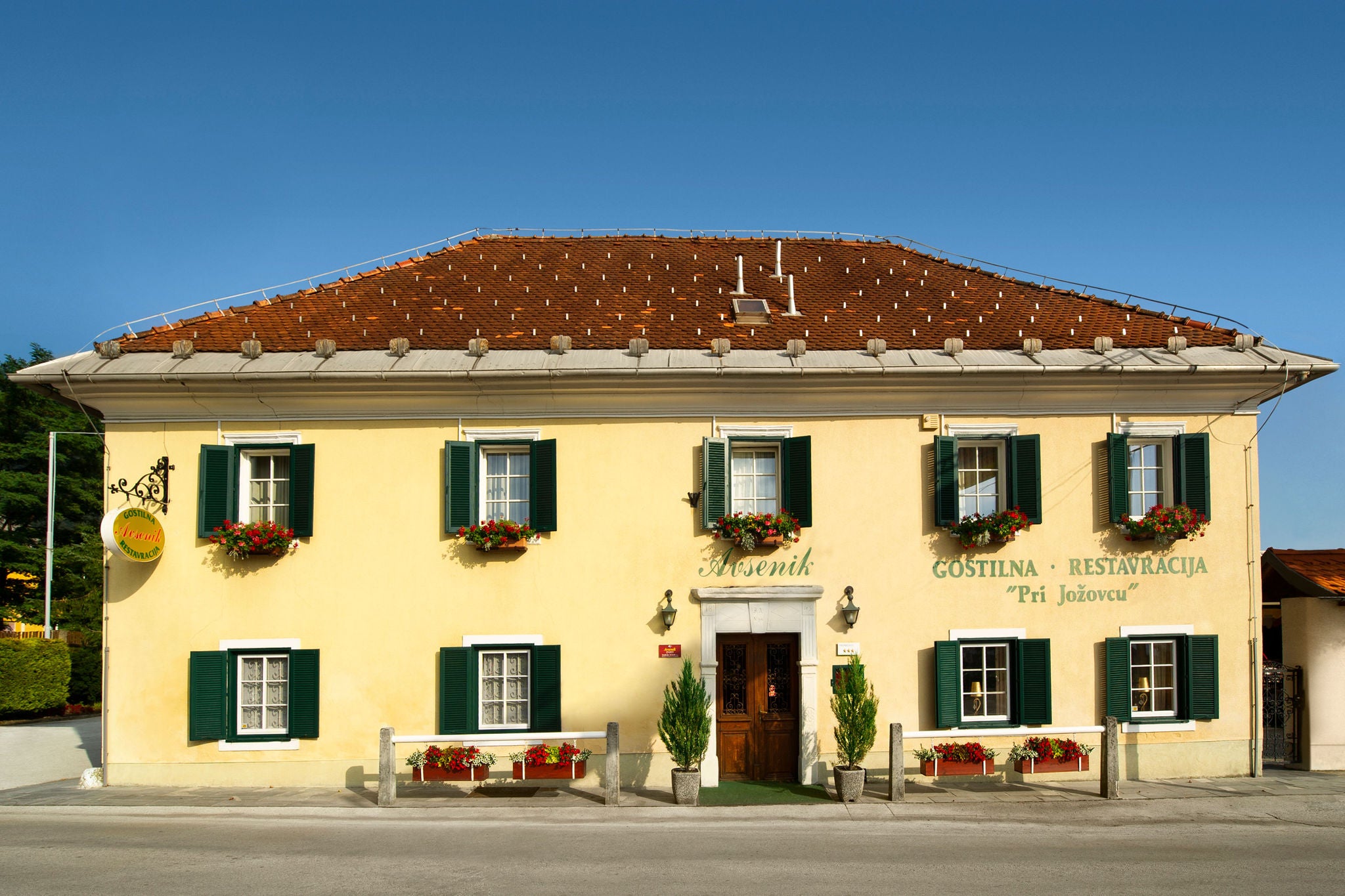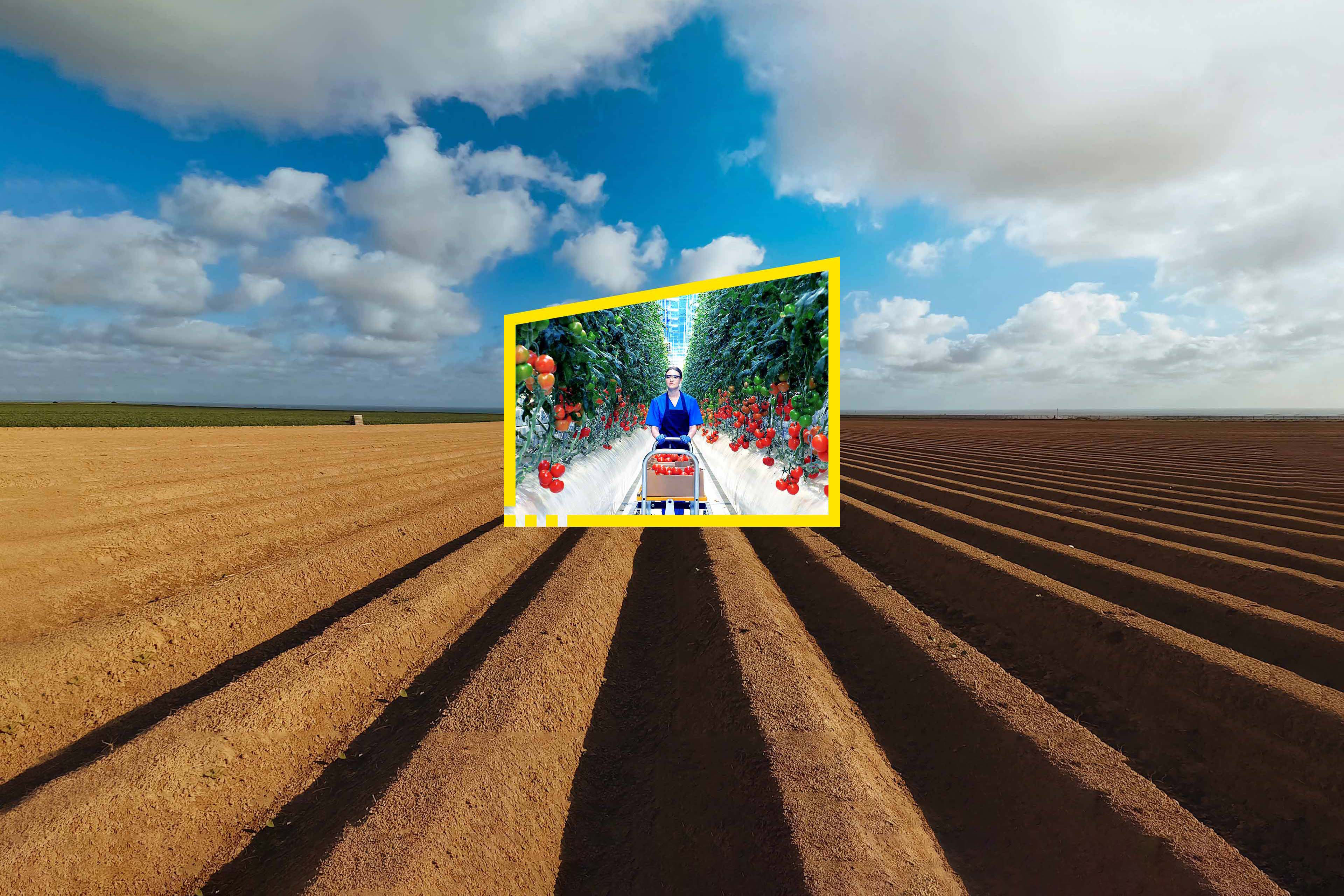EY refers to the global organization, and may refer to one or more, of the member firms of Ernst & Young Global Limited, each of which is a separate legal entity. Ernst & Young Global Limited, a UK company limited by guarantee, does not provide services to clients.

The Avsenik tradition lives on
The Avsenik name is more than just a synonym for folk music. It embodies a company and a family in which hospitality services are deeply intertwined with music, event organization and tourist services.
From beginnings as the Jožovc restaurant, the family venue grew into an event hall with concerts for up to 350 people, with the number of visitors even higher during the Avsenik Festival. Before the coronavirus crisis the company employed 20 people but now they are starting again. In the future the entrepreneurial success of Gregor and Katarina Avsenik will be continued by their children, Sašo, Aleš, Nataša, Monika and Primož.
The heart is not enough. You have to put in your heart and soul and all your knowledge, but also keep all the employees connected. There are no soloists, everyone is important.
The heart is not enough. You have to put in your heart and soul and all your knowledge, but also keep all the employees connected. There are no soloists, everyone is important.

From restaurant to company
The Avsenik story began with grandparents Ivan and Mara, who managed the Jožovc restaurant in the town of Begunje na Gorenjskem until their late retirement. “Around 1978, they put the restaurant up for rent. It was old and in need of renovation,” explains their grandson Gregor. At that time his father Slavko and uncle Vinko Avsenik were already famous musicians and many people wanted to visit the house in which they were born.
“Father decided to renovate it and the refurbished Jožovc restaurant was opened in 1988,” continues Gregor. Gregor himself, a trained musician and Slavko’s youngest son, took over its management. This was a hard choice, but his priorities were clear: first the company, then family and finally music as a hobby.
Gregor and his wife Katarina made a home for themselves in Begunje na Gorenjskem and began writing a new story, intertwining the threads of the restaurant and the guesthouse, the events and the music. “Slavko’s parents let us do what we wanted. We had room to breathe,” says Katarina. Her work was mostly in the office. “My area of specialty is numbers. Gregor developed new ideas and I kept the finances in order,” she adds.
The Avsenik Festival was the first business enterprise to connect all the members of the Avsenik family.
Up to four sold-out events per week
The Avsenik music guided development from a guesthouse and restaurant toward organization of events, especially those which were music-related. “We organised Happy Fridays in the smaller rooms, sometimes with Slavko’s collaboration. Later we began talking about Wednesday nights — the traditional day for evening events in the garden,” explains Gregor. Their first house band was the Gašperji. However, the garden events were always at the mercy of the weather: “Will they open the umbrellas and see the event through, or will they cancel it? So, in 1997 we opened an event hall.” This is when the hospitality services took a back seat and events became the priority. “We had two, three, even four sold out events per week. The buses were standing in line, guests were brought in by tourist agencies, we did not need to do any special marketing,” says Gregor.
Managing the Avsenik tradition is a huge responsibility. We have to work within certain limits while looking for new ways forward.
A constant balancing act
Their success culminated in 2007, a year before the 55th anniversary of Avsenik music, when they added the Avsenik Season to their already rich program, culminating in the first Avsenik Festival in 2008. “I wanted my father to see that his music lives on, even though he is no longer actively performing. He was proud and happy, despite his dislike for the word ‘proud’,” adds Gregor. During the five-day festival the visitors could see a small piece of the large Avsenik legacy. Since 2013, the festival has been organized bi-annually and lasts three days. The festival was also the first business enterprise to connect all the members of the Avsenik family.
Managing the music industry side as well as hospitality services and accepting a large number of visitors while maintaining high quality is, as Gregor puts it, “a constant balancing act”. The most difficult task, which he has always found challenging, is managing the employees. “The heart is not enough. You have to put in your heart and soul and all your knowledge, but also keep all the employees connected. There are no soloists, everyone is important,” he explains.
The next generation is bringing a breath of fresh air not only to hospitality services and event organization, but also to the music legacy, an important part of the family success story.
Tradition with a clear vision: a more modern future
Eight years ago, Gregor handed the management of the restaurant and house to the company’s Director Nataša Farkaš and then at the end of last year, the position was entrusted to Gregor’s son Aleš. Katarina adds: “I’m glad we came back together as a family; we live and breathe together. But it can also be difficult. Aleš is currently in a really bad situation; he had everything sold out as recently as last Friday, but he had to close down.”
“I’m learning by doing. I have the passion, the energy and I’m gaining experience,” emphasises Aleš. He now has a broader picture of the hospitality and music sectors. “There is more to it than simply putting a meal in front of a guest,” he adds. He sees that the future holds many options and improvements and is very happy that his parents trust his management. “We have to work within certain limits, since our guests expect tradition. We are taking the same approach Sašo had to music: we are making the Avsenik family slightly more modern while staying true to tradition,” describes Aleš.
Avsenik music on concert stages, not just at village fairs
The next generation is bringing a breath of fresh air not only to hospitality services and event organization, but also to the music legacy, an important part of the family success story. Sašo, Katarina and Gregor’s firstborn son, regularly performs at the Jožovc restaurant with his Sašo Avsenik Ensemble. He has been passionate about folk music since childhood. “With my father’s support I visited uncle Vilko, who taught me a lot,” says Sašo,who recorded his first album in 2009 at the age of only 18. The Avsenik name helped his group to move from opening act to main attraction very quickly. They play folk music with their own twist: “Modernization may not be the right word, I would say we are making it more accessible.”
Sašo points out that the Avsenik music is suitable for concert stages — and not just village fairs — because of the quality of the sound, the values it promotes (family, environment, nature, honesty, work) and its positivity. He adds that his grandfather Slavko was an exceptional musician. “He and Vilko invented this type of folk music, in which they praised the beauty of Slovenia. Perhaps their most famous song is Slovenija, Od Kod Lepote Tvoje from 1973. At that time, this was a completely new sound, it invoked Slovenian identity and coziness,” he enthuses. The song Na Golici is said to be one of the most played instrumental pieces in the world and in 2020 the Avsenik Brothers Ensemble was nominated for the European Citizens Prize. Music is also a constant in the life of Monika, who sings in the famous Slovenian a cappella choir Perpetuum Jazzile. She also sometimes joins her older brother’s ensemble on stage. “In the last year of my grandfather’s life I grew really close to him. I started discovering his music and it showed me his purpose and told the story he was building for so many years,” explains Monika.
The Avsenik music guided development from a guesthouse and restaurant toward organization of events, especially those which were music-related.
Museum is part of the future
Gregor’s mother Brigita was the one who started managing a gallery which hosted temporary guest exhibitions and became a permanent home for the Hohner instruments and the awards received by the Avsenik ensemble. “My father Slavko was an interesting man. He never wanted to boast of his success and would not take more than one wall in the museum,” points out Gregor. An exhibition was organized to celebrate the 55th anniversary of Avsenik music and the Avsenik museum finally opened its doors in 2016, on Slavko’s birthday and a year after his death. This is where Nataša, who is about to complete her interior design degree, sees her place. She has prepared the exhibition material for the renovated museum, became partially employed at the company in 2019 and has also worked in the restaurant. “I want to know the entire house and work in several fields,” she adds. Primož, Gregor and Katarina’s youngest, still goes to high school and currently greets the guests and helps with the service. “He is amiable, precise and has a good work ethic. The guests need a genuine contact with an Avsenik, and now that my main focus is management, Primož is this contact,” says Aleš, describing his brother.
Birds who returned to the nest
According to Gregor, Aleš and Saša, coronavirus has brought things back to the beginning. “I want the young generation to set their own goals and gain experience,” says Gregor. After 32 years of work he is slowly retreating from the business to have more time for music and his guitar. The combined strength of their five children makes the Avsenik family unstoppable. “There have been a few years when we were spread out. Now we are all back together — each working in his or her field, but writing the same story,” says Aleš. Monika adds: “They say that birds fly out so that they can return back home.” Even the coronavirus, which caused a fall in the number of visitors and eventual closure of services, has not brought the Avsenik family down. They started flirting with digitization and online exposure. Sašo began communicating with fans through their Facebook site. The stories of the Avsenik family came alive in the photos of the restaurant, delicious homemade dishes and their employees, but the main aim of the new channels was to help with the exposure of their music and events. “It is important to be responsive, flexible and adaptable during a crisis. And when the coronavirus came, we did not wait long. We stopped and calmed down for a moment, but now we are testing new approaches,” explains Aleš optimistically. “Every hurdle can also bring something good. It forces you to step back and try something new, which can turn out to be even better,” concludes Katarina.
Summary
Lorem ipsum dolor sit amet, consectetur adipiscing elit, sed do eiusmod tempor incididunt ut labore et dolore magna aliqua. Ut enim ad minim veniam, quis nostrud exercitation ullamco laboris nisi ut aliquip ex ea commodo consequat. Duis aute irure dolor in reprehenderit in voluptate velit esse cillum dolore eu fugiat nulla pariatur. Excepteur sint occaecat cupidatat non proident, sunt in culpa qui officia deserunt mollit anim id est laborum.



